Now that spring has finally sprung, the message from New Hampshire Fish & Game is clear: Be bear aware.
The American Black Bear is the only bear living throughout New Hampshire and can be found in all of its counties. Bears are generally no threat to humans, but conservation officers warn that locals and visitors alike should avoid conditioning bears to human interaction to ensure that dynamic remains intact.
New Hampshire Fish & Game biologist Dan Bailey said you could encounter a bear anywhere within the Granite State.
“Bears are present in every town throughout the state,” Bailey said. “You’ve got to be bear aware.”
Taking extra care not to condition bears to human interaction by removing food sources or making them inaccessible is one of the best ways to protect yourself and the bears themselves during the spring and summer months, he said.
There’s roughly 6,000 bears in New Hampshire and there hasn’t been a human killed by one since the 1700s, according to NH Fish & Game. There have been documented conflicts, which differ from peaceful interactions, but those are also rare.
Most human-bear conflicts arise because of human actions. Leaving trash in the open, not thoroughly cleaning the surface of an outdoor grill after cooking and having easily accessible bird feeders are common culprits.
Bird feeders are a bears’ favorite treat and NH Fish & Game recommends removing them altogether this time of year. Chicken coops also attract bears onto human property, but other livestock are unlikely to be targeted as a meal.
Bailey recommended those with chicken coops in their yard or on their property take extra security measures to ensure the safety of poultry, including erecting electric wire. Bears cans easily gain access through chicken wire.
“Bears think with their stomach,” Bailey said.
Bailey said Granite Staters and visitors should think to themselves, "How do we manage that and store trash so that bears cannot access it?"
Specifically for visitors to the Lakes Region, either camping or staying in short-term rentals, best practice is to double-check that food isn’t left out. Keeping food in a cooler inside of a locked car can prevent an unwanted encounter, for example.
Lt. Adam Cheney, NH Fish & Game District 5 conservation officer, said he’s seen instances of violence among human-bear conflicts before, though that is rare. The animals are looking for food and are generally not aggressive.
“Bears are kind of like a big raccoon,” Cheney said. “They’re out there looking for food.”
There was an instance near Durham where a bear gained access to a woman’s house and got stuck inside. She suffered severe injuries after being trampled.
“The bear got into a door on someone’s residence that wasn’t shut tight,” he said.
If a bear gets itself in a house, the best thing to do is to leave quickly and contact local law enforcement.
“Bears won’t usually attack but they will defend themselves if they feel threatened,” he said.
If you happen upon a bear, either in the wild or in town, it’s best to give them as much space as possible and not to run away quickly. It’s better to walk slowly and speak softly while creating distance between yourself and the animal.
If you’re inside a building and notice a bear on the property, perhaps attempting to gain access to a food source like a chicken coop, sometimes loudly banging pots and pans together will be enough to scare them off, Cheney said.
Bears also have an aversion to the smell of ammonia, so hanging rags soaked in the substance near trash cans or chicken pens can ward off unwanted guests. Taking these measures can help prevent conditioning bears to human interaction.
“They can be very used to humans,” Cheney said. “Not afraid, but they tend to keep their distance.”
Once in a while, a motorist may collide with a bear on the road. In that case, the driver should contact NH Fish & Game dispatch at 603-271-3361 and provide details including the location of the collision and whether or not the bear appears to be injured.
Bears are commonly spotted within towns and cities all throughout New Hampshire and conservation officers increasingly receive reports of interactions year-by-year.
“The bear population in New Hampshire is very healthy, I would say,” Cheney said.






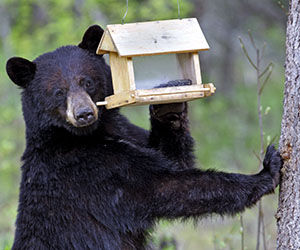
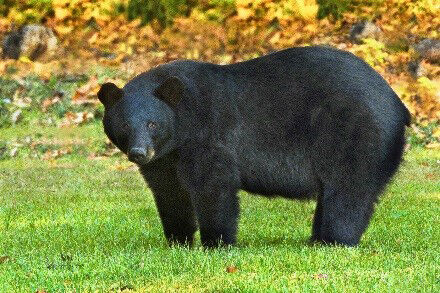
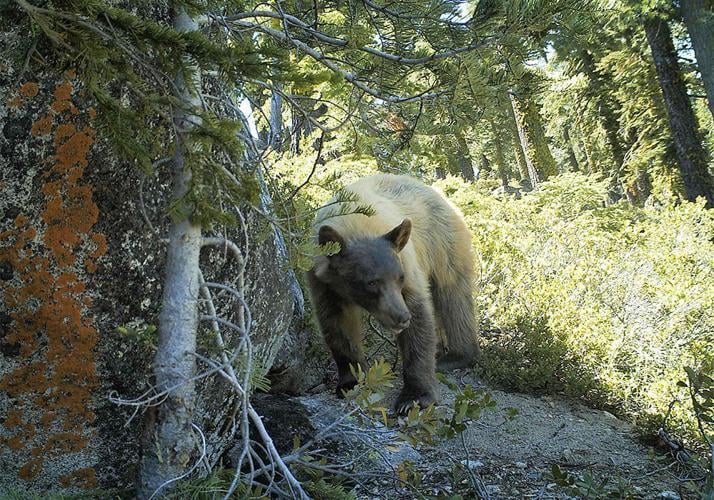
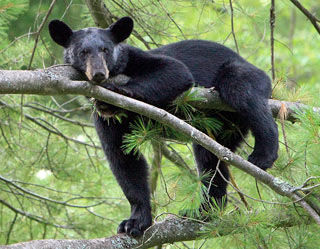
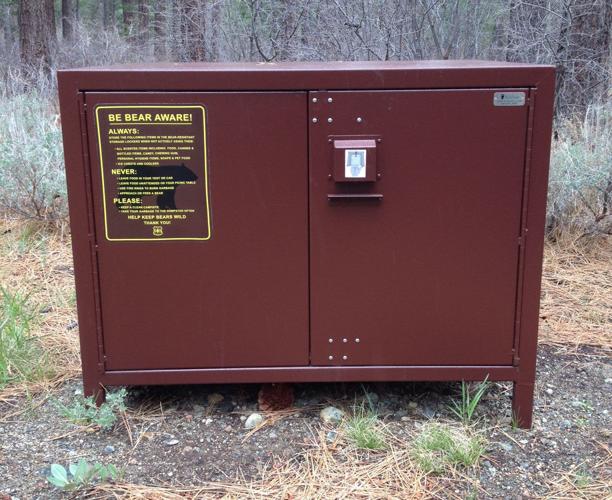
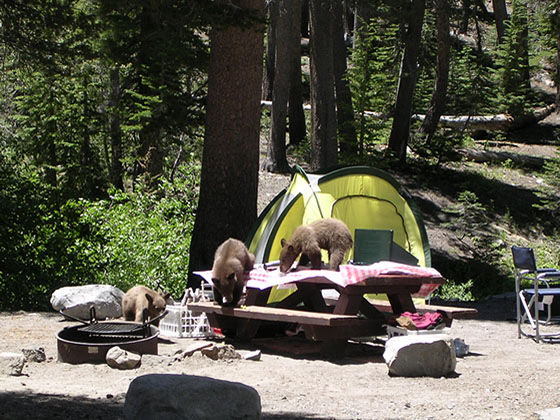











(1) comment
Recently came across a bear early afternoon crossing the road on Allen Mills Rd in Gilmanton . We drove slowly as he crossed in front of us then ran off into woods . A beautiful sight !
Welcome to the discussion.
Log In
Keep it Clean. Please avoid obscene, vulgar, lewd, racist or sexually-oriented language.
PLEASE TURN OFF YOUR CAPS LOCK.
Don't Threaten. Threats of harming another person will not be tolerated.
Be Truthful. Don't knowingly lie about anyone or anything.
Be Nice. No racism, sexism or any sort of -ism that is degrading to another person.
Be Proactive. Use the 'Report' link on each comment to let us know of abusive posts.
Share with Us. We'd love to hear eyewitness accounts, the history behind an article.